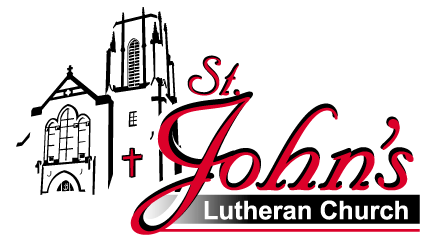122. The Parable of the Ten Virgins Mt. 25:1–13
The Lord had seriously admonished his disciples to watch and prepare for his coming. He reinforced this admonition with a parable. The kingdom of heaven is like ten virgins who took their lamps and went to meet the bridegroom. The wedding, at which the virgins want to solemnly receive the bridegroom, is not here imagined in the bridegroom’s house, as was customary, but in the bride’s house. The image is fitting. Christ is the bridegroom, who will one day come down from heaven to his bride, to his congregation, to unite with her. The virgins here represent the bride. They are an image of Christ’s church on earth. Five of the virgins were foolish and five were wise. The foolish ones only took their lamps, but did not take any oil with them except the oil burning in their lamps, and thus did not take care that their lamps did not go out. The wise ones, on the other hand, took oil with them in their vessels along with their lamps. The burning lamps are a picture of faith. The oil is, as often in Scripture, a picture of the Holy Spirit, who nourishes and maintains faith through the Word. The wise virgins are the true Christians who are concerned that their faith will endure to the end and who therefore diligently listen to, learn, and meditate on God’s Word. The foolish virgins are lazy Christians who are satisfied that they have come to the knowledge of the truth and then become sluggish and lazy in God’s Word, and whose faith gradually dies out. It is wise to think ahead of time about how one will stand before the Lord on the day of his return. And it is unpardonable foolishness to completely lose sight of your future fate.
The bridegroom tarried for a while. But when at midnight the cry went up: “Behold, the bridegroom is coming,” the maidens who had fallen asleep all got up and trimmed their lamps. The wise ones were ready to receive the bridegroom, their lamps were burning brightly, they had just enough oil with them, and they then went with him to the wedding. The foolish ones, on the other hand, were afraid and anxious, for their lamps were extinguished and they lacked oil. They asked their companions to give them some of their oil, but they replied: “Not so, lest there not be enough for both us and you.” And when they went to buy oil from the merchants and returned, the door to the wedding hall was locked. They cried out: “Lord, Lord, open to us!” But he said: “Truly, I say to you, I do not know you.” Christ, the bridegroom, waits a while with his last day and makes his people wait. However, what St. Peter writes applies here: “The Lord is not slow in keeping his promise, as some count slowness, but is patient with us, not wanting anyone to perish, but all to turn to repentance” (2 Pt 3:9). But when the Lord appears one day, the believers will receive him with joy, their light of faith will burn brightly, and they will then enter with him into the joys of his kingdom. The others, however, who have perhaps kept the appearance of Christianity until now, but whose faith has died out, will then fall into fear and despair. They realize with horror that they have wasted their time and that it is now too late to make up for what they have missed. Nor can others stand in for them with their faith on the day of judgment. Everyone must believe for themselves. They will find the door closed. The time of grace has passed. And Christ will testify to them that he does not know them, that they are not among his own. The bond that first bound them to him is broken. No, not those who have believed for a time, but only those who persevere in their faith to the end will be saved.
The evangelist Matthew adds a parable about servants to whom their master has entrusted his property to manage, and from whom he then demands an accounting in due course (Mt 25:14–30). This corresponds in every respect to the other parable the Lord told to his disciples on the way from Jericho to Jerusalem (Lk 19:11–27). Only that here, large sums—hundredweights or talents—are mentioned, there, pounds or denarii, which makes no difference in meaning. And Matthew does not mention the rebellious citizens. Presumably on that Tuesday evening, when the Lord once again seriously admonished his disciples to be vigilant and properly prepared when announcing his future, he once again made this admonition clearer with the image of the master and his servants.
